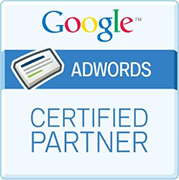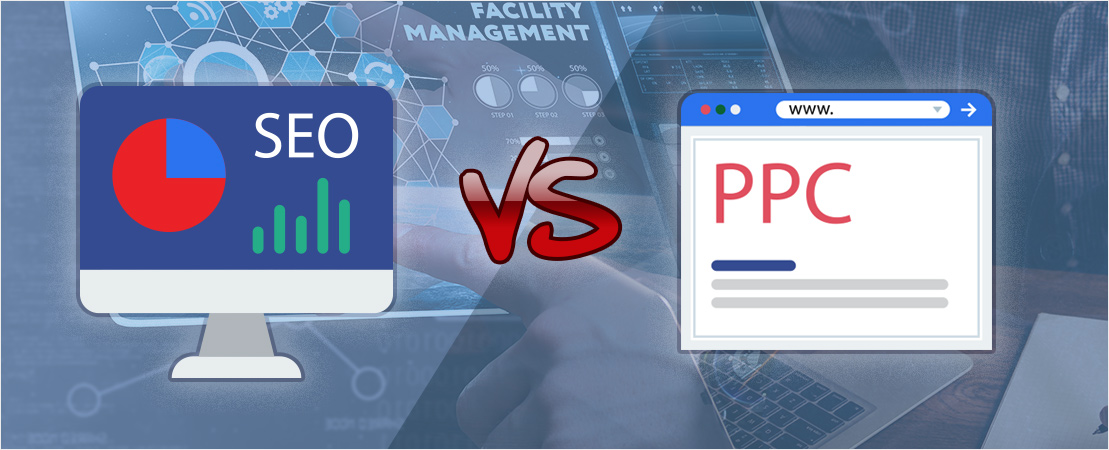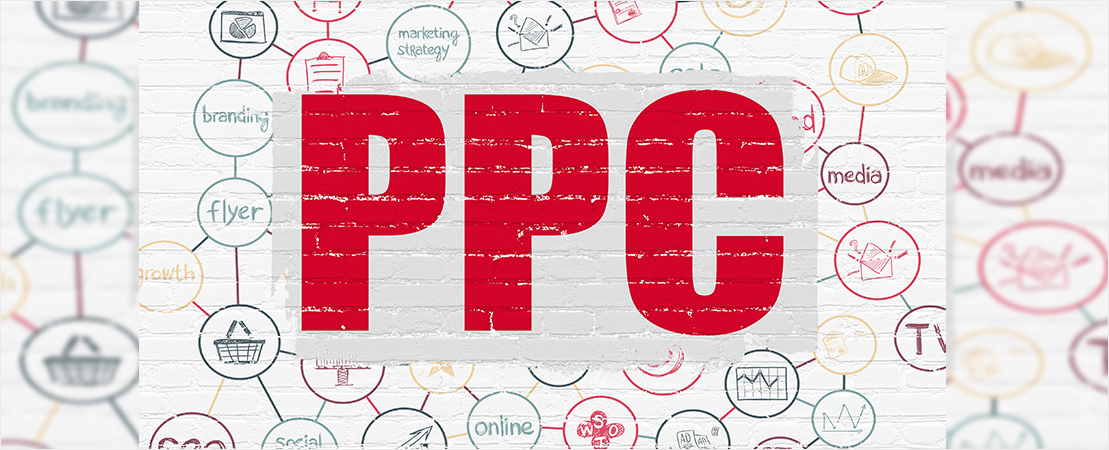When we think of Digital Marketing, the terms SEO and PPC are in the forefront of our minds. They’re the major players in the Search Engine Marketing game. Search Engine Optimization and Pay Per Click offer your Small Business a leg-up into the Digital world, helping you to get noticed Online and boost your Success. When approaching the Online world for your Small Business, they’ll quickly become your best friends. If you’re not already across them, it’s about time you considered it.
People are most likely to end up on your Website via a Search Engine, rather than directly typing the domain of your Website into their search bar: that’s the modern day norm. They’re simply going to search for products and services they need, then pick and choose from the most popular, or seemingly best, results to their search. And these results will almost always be the top ranking Websites.
And the reason they’re top ranking? Well, that has everything to do with SEO and PPC. If people don’t know your Domain name, the only way they’re going to reach you Website is through Search Engine Results. If you’re not in the first page of results, you might as well not exist. Your Business needs a Search Engine Marketing tool to have a good presence on the results page, and to ultimately deliver Traffic to your Website. After all, that’s the whole reason you took your Small Business Online.
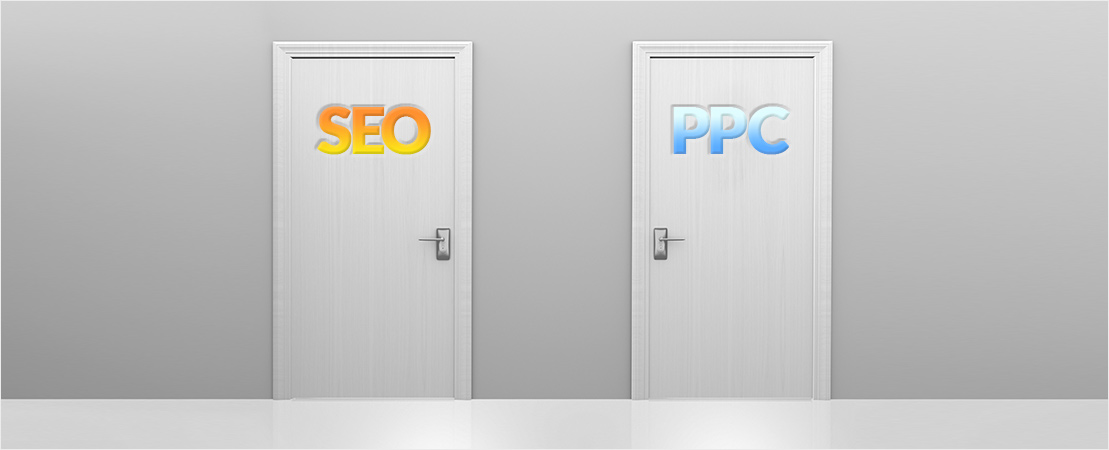
But What’s the Difference Between SEO and PPC? And Which Method is Better?
Put simply, both are important. Both are effective. Both are different. To be able to determine the right method for your Small Business, you’ll need to consider your needs and budget first.
If you want traffic quickly and efficiently, then PPC might be right for you. But if you’re on a budget and after a more cost-effective tool, it would make more sense to invest time in gaining high search rankings through SEO. Understanding the difference between SEO and PPC and what’s best suited to your business is difficult, which is why it can pay to speak to a professional Marketing Expert when considering your options. All Small Businesses are unique and so are their growth goals. But to help you recognise what’s right for you, we’ve summarised SEO and PPC’s key differences.
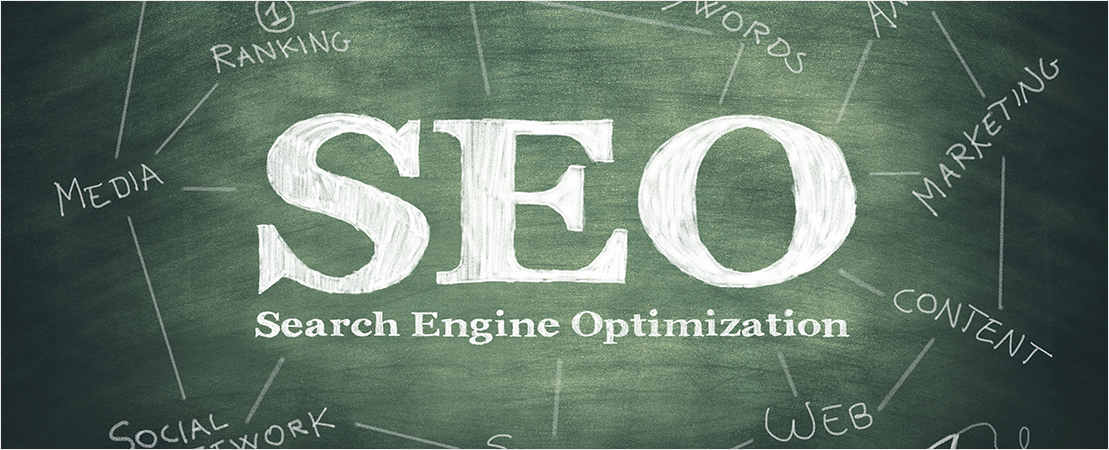
Search Engine Optimization
The most obvious difference is that SEO is a long-term Marketing strategy. It works over time and it can sometimes take up to 3 or 4 months before you may start seeing results. It’s a slow but long-term incline in your Website’s Online presence. SEO is a strategised method using Keywords and Key Terms to rank your website organically on Search Engine Results.
Essentially, it’s the process of a Website achieving a high ranking in search results using these specified Keywords throughout the content, both on in the backend and on those pages displayed to the public. It’s a gradual process. For SEO to work correctly, you’ll be required to research popular terms related to your industry. These terms must be ones that your customers are most likely to look for. It’s also important to use terms with less competition. By including common used Keywords with less rivalry, your Website will rank higher. SEO works by indexing your Websites Keywords onto Google and because of this, it takes time. It’s definitely not a get rich quick scheme, but it’s organic and continuous. It’s a steady Marketing Strategy that strategically grows your Website’s presence over time and maintains your Website’s traffic.
Pay Per Click
PPC on the other hand, is paid Search Engine Advertising. Small Business’s pay to have their Website’s rank in the top ad sections of Google Search Results. This is done through bidding dollar amounts on Google AdWords and out-bidding competitors for the top spots.
By investing enough, this method provides an almost instant result. Your Ads are virtually guaranteed to rank in the top 4 Search Results immediately. Yes, it takes an initial investment, unlike SEO, but it has the potential to generate a large enough amount of traffic that you’ll see a great Return on Investment! You’re paying for a service to deliver results.
And best of all, by Paying Per Click on your Ad, you’ll only pay for actual leads; people who are genuinely interested in your Business’s products and services. PPC's true strengths are in its speed and expansiveness. It delivers immediate results, results that are worth the investment.

What’s Best For You?
It’s a lot to wrap your head around but now you know the difference, it’s time to start thinking about what’s right for your Small Business. Unfortunately, there’s no one right answer. They aren’t suited to one specific type of industry, and nor is every Business suited to just one method.
SEO is a slow but a long burn strategy, optimizing your Website’s content over a lengthy period of time. PPC is instant and guaranteed, but it’s requires investment and maintenance over time. When it comes to the long term lifeline of your Online Marketing, there isn’t an easy answer. But by knowing their differences, you can start the process of choosing the right one for you. It could even be both! SEO and PPC can work hand in hand to create a phenomenal Marketing Strategy! After all, they have the same aim in mind; to increase traffic to your Website. And although they’re approaches to that goal differ, they also complement each other. When done correctly, both PPC and organic SEO can get you on the front page of Search Engines Results.
Still a bit confused? We get it. If Digital Marketing isn’t your specialty, SEO and PPC might still seem foreign and complicated. Like most Small Business Owners, you’re busy and you probably don’t have time to start executing SEO or PPC yourself. At Sites n Stores, we’re here to help. Don’t waste any more time or money, and let the experts take care of you SEO and PPC. We have a dedicated team of Digital Marketers trained to execute successful SEO and PPC strategies for your Small Business.


